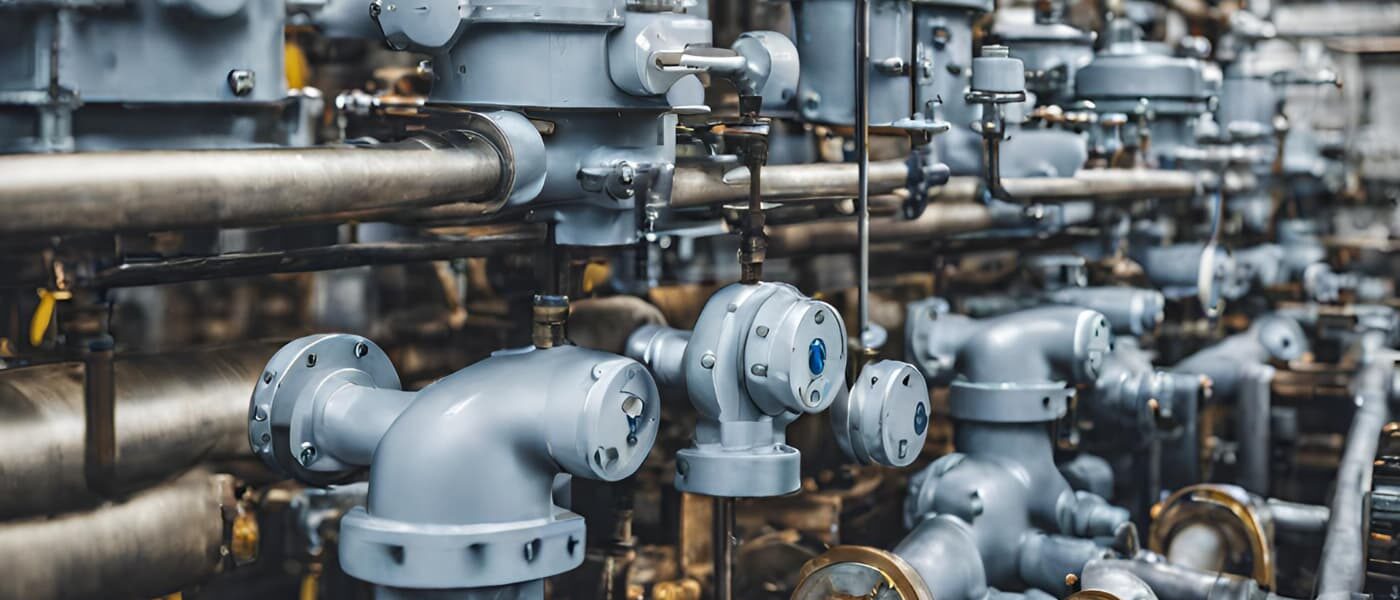Achieving precise control over airflow and temperature is paramount. Damper actuators, along with advanced components like Danfoss valve actuators and dual pressure controls, play a pivotal role in ensuring optimal conditions. In this comprehensive article, we’ll delve deep into the world of damper actuators, exploring their types, applications, and offering valuable tips for selection. Additionally, we’ll shine a spotlight on Danfoss valve actuators and dual pressure controls, highlighting their relevance in HVAC and industrial settings.
What Are Damper Actuators?
Damper actuators are integral components of HVAC systems and industrial processes. Their primary function is to regulate the movement of dampers, which, in turn, control the flow of air, gas, or liquids. By precisely adjusting damper positions, these actuators manage airflow and temperature, ensuring optimal conditions within various environments. Their versatility makes them indispensable in maintaining comfortable indoor spaces and optimizing industrial processes.
Types of Damper Actuators
Understanding the various types of damper actuators is crucial for selecting the right one for specific applications. These actuators come in several forms, each with unique characteristics:
- Electric Damper Actuators: Electric actuators are known for their precision and ease of control. They utilize electric motors to drive damper movements, allowing for precise positioning and modulation. Electric actuators are preferred when fine-tuned control is essential, such as in HVAC systems.
- Pneumatic Damper Actuators: Pneumatic actuators operate using compressed air, making them suitable for environments where electrical power sources might not be readily available or where safety considerations favor pneumatic systems. They are reliable and excel in applications requiring rapid response.
- Hydraulic Damper Actuators: Hydraulic actuators use hydraulic fluid, usually oil, to drive damper movements. These actuators provide high force capabilities, making them suitable for handling large loads in heavy-duty industrial settings.
Applications of Damper Actuators
The applications of damper actuators are diverse and span multiple industries:
- HVAC Systems: Damper actuators are essential in HVAC systems, where they ensure that conditioned air is distributed efficiently and that temperature control is maintained. They contribute to occupant comfort and energy efficiency in commercial buildings.
- Industrial Processes: Damper actuators play a critical role in industrial processes where precise control of airflow or fluid flow is essential. They are used in applications such as combustion control, cleanroom environments, and material handling systems.
- Energy Management: In energy management systems, damper actuators help optimize energy usage by precisely controlling airflow and temperature. They enable demand-controlled ventilation strategies, reducing energy consumption while maintaining indoor air quality.
Selecting the Right Damper Actuator
Choosing the right damper actuator is paramount for ensuring optimal system performance. Here are valuable tips to guide the selection process:
- Understand Your Requirements: Before selecting an actuator, identify your specific needs. Consider factors such as torque requirements, damper size, and environmental conditions. Different applications may demand different types of actuators.
- Compatibility Matters: Ensure that the damper actuator you choose is compatible with your existing systems. Compatibility issues can lead to inefficiencies and operational challenges.
- Consider Control Options: Evaluate the control options available with the damper actuator. Some actuators offer advanced control features, such as modulating control, which allows for precise adjustment of damper positions.
- Reliability and Durability: Look for damper actuators from reputable manufacturers known for their reliability and durability. Investing in high-quality actuators can result in fewer maintenance issues and longer service life.
Danfoss Valve Actuators: A Closer Look
When it comes to trusted names in the world of damper actuators and related components, Danfoss stands out. Danfoss valve actuators are renowned for their exceptional quality and performance. They offer a wide range of options to suit various HVAC and industrial applications. With advanced control features and a reputation for reliability, Danfoss valve actuators are a preferred choice among professionals in the field.
Dual Pressure Controls in HVAC and Refrigeration
In the context of HVAC and refrigeration systems, dual pressure controls play a critical role in maintaining optimal operating conditions. These controls are designed to monitor both high and low pressure levels within the system. When pressure levels fall outside the desired range, dual pressure controls take action to safeguard the system.
For example, in refrigeration systems, dual pressure controls prevent issues such as compressor overload and evaporator coil freezing. They ensure that the system operates within safe pressure limits, protecting components and preventing costly breakdowns.
Benefits of Damper Actuators, Danfoss Valve Actuators, and Dual Pressure Controls
The use of damper actuators, Danfoss valve actuators, and dual pressure controls offers several advantages across industries:
- Improved Control: These components provide precise control over airflow, temperature, and pressure, resulting in consistent and reliable system performance.
- Energy Efficiency: By modulating airflow and temperature, damper actuators and dual pressure controls contribute to energy savings, reducing operational costs.
- Reduced Maintenance: High-quality components are reliable and require minimal maintenance, reducing downtime and operational expenses.
- Cost Savings: Through energy efficiency and reduced maintenance needs, these components can lead to significant cost savings over time.
Conclusion
Understanding damper actuators, along with advanced components like Danfoss valve actuators and dual pressure controls, is essential for optimizing HVAC systems and industrial processes. These components play pivotal roles in achieving precise control over airflow, temperature, and pressure, contributing to energy efficiency and cost savings. Whether you’re selecting a damper actuator for a specific application or considering Danfoss valve actuators for their reputation, making informed choices can lead to improved system performance and significant savings. The knowledge of these components is key to achieving success in various industries where precise control and system reliability are paramount.
